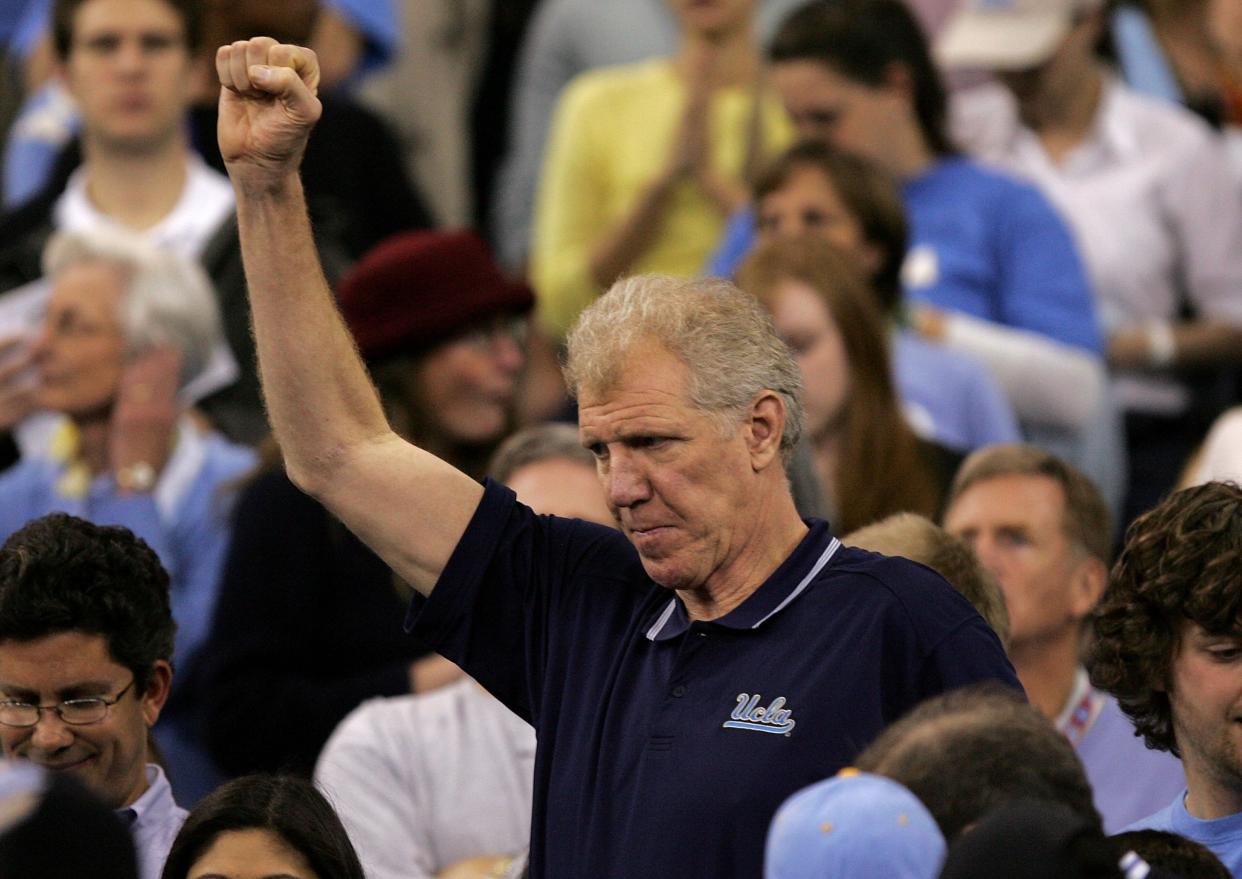Bob Raissman: There will never be another Bill Walton, a free spirit as a player and a broadcaster

NEW YORK — It would be an exercise in futility for anyone with microphone dreams to eyeball video of Bill Walton and aspire to duplicate his on-camera stylings.
That would be impossible. Like trying to copy a singularly sweet stay on this planet that ended last week at the age of 71. All the tributes, stories and media recollections offered evidence of a person now being bigger in death than in life.
Not with Walton. His life was like a carnival. He was playing in a one-man band. Or a circus behind a microphone. His basketball analysis on CBS, NBC or ESPN was often more like a tent revival. Or a traveling medicine show.
An artist on the court and a put-on artist off, Walton was an all-time great basketball player, the world’s tallest Grateful Dead groupie, a philosopher, hyperbolic orator and comedian.
He was one of the few NBA game analysts who made an emotional connection with viewers. Walton was available and approachable. And he actually liked the people who analyzed his work. He enjoyed talking to boss scribes, even those who worked at New York tabloids.
While doing all this, Walton also managed to pave every road he walked with kindness.
Walton’s version of a better world may have been different than yours. Even if that’s the case, you couldn’t fault him for trying. He spent a lifetime being free. That included his unpredictable microphone stylings. Reading past reviews of his work, there were critics who bristled, urging him to stick to the game, when he took a verbal detour around what was happening that moment on the court.
His style was not contrived to generate attention. Walton was genuine. It was ironic that a guy who dealt with a speech impediment into his late twenties would wind up such an entertaining communicator.
He was a good listener too. Walton once pin-pointed the moment he started dealing seriously with his problem. It was during a chance meeting with Marty Glickman, the legendary NYC play-by-play voice.
“Marty explained, patiently and concisely, that talking, communicating was a skill not a gift or a birthright,” Walton once said. “And that like any skill it needed to be developed over a lifetime of hard work, discipline, organization and practice.”
Walton thought about fundamentals and started with the basics: “Like the ability to mechanically duplicate moves on the basketball court,” Walton once said. “And I just applied that to speaking.”
Walton was eager to please. When he joined ESPN in 2002, the network suits loaded up on him. He analyzed games, made studio appearances, was a regular on a variety of ESPN Radio shows and, in 2003, starred in his own ESPN reality show: “Bill Walton’s Long Strange Trip.”
It was obvious ESPN was overloading and overexposing Walton, whose back problems were becoming more serious. At one point he told Sports Illustrated that the pain was so bad he contemplated suicide. The suits burned him out. By 2009, they threw him out.
If Walton was angry, he didn’t show it. At least publicly. ESPN brought him back in 2012, mostly to work Pac 12 basketball games. Incredibly, Walton kicked up the energy and was more outrageous. He reinvented himself.
Walton would advise young broadcasters not to try this trick at home — or on the road, Then, he would remind them what the Free World already knew.
There is only one Bill Walton.


